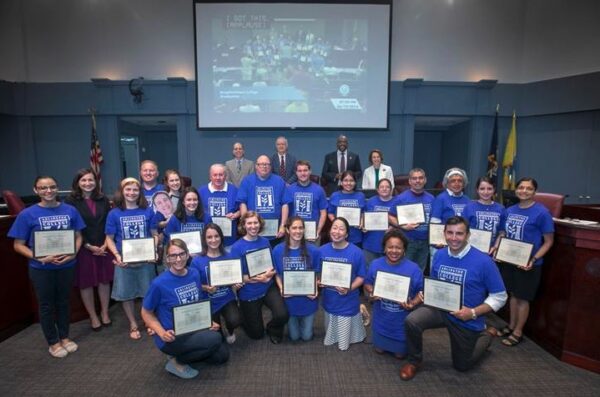 Making Room is a biweekly opinion column. The views expressed are solely the author’s.
Making Room is a biweekly opinion column. The views expressed are solely the author’s.
In the Spring of 2018, I had the great fortune to participate in Arlington Neighborhood College. This county program brings together a group of residents who want to be more involved in the County’s civic life.
Over the course of eight weeks, we were introduced to a diverse range of Arlington County staff and elected officials, as well as the leaders of some of Arlington’s central public-facing institutions.
I recommend the program to anyone interested in being more engaged. The application is due on Friday, Sept. 17. You don’t have to be a civic association president or a frequent visitor to County Board meetings to be accepted. Neighborhood College is for emerging leaders of all kinds. My class of 2018 had long-time and new residents, with a variety of languages, professions and civic interests. The program is for people who live or work in Arlington and “want to improve their communities, are interested in addressing local issues and are willing to devote time and energy to community activities in Arlington County.”
The program, as I experienced it in 2018, had many strengths. The curriculum was divided between leadership skill-building and informal presentations by representatives for Arlington’s key governmental and civic institutions. The program should exemplify what Arlington values in civic leaders and should introduce the central gatekeeping institutions that form the Arlington Way.
For me, the leadership training had limited value. We usually practiced by discussing benign topics, rather than the critical issues that we are concerned about. Our conflict resolution and listening practice did not take advantage of genuine differences of opinion and perspective within the group.
The facilitators did a great job of bringing in representatives from all aspects of Arlington community management and governance. However, in my civic engagement over the three years since I ‘graduated’ from Neighborhood College, it seems that many of our most important decisions are made in a web of public and semi-public meetings that can be opaque to newcomers.
For example, we didn’t hear from representatives of County commissions, such as Planning or Transportation. These groups play a significant role in making recommendations to the County Board and they are often a first or second step for community involvement.
A truly engaged Arlington citizen needs to know the ins and outs of many bureaucratic processes. For example:
- How do you read the County Board’s agenda and sign up to speak?
- How does the site plan process work?
- How does the budget process work?
- How does someone become a client of PathForward (formerly ASPAN) or AFAC?
- What happens if someone is arrested?
- How do you get a stop sign added to your neighborhood?
- How do school boundaries get drawn?
To be effective neighborhood advocates and engaged citizens of Arlington, we need to learn how these processes work. To train a cohort of Arlington leaders, Neighborhood College should encourage participants to dig into these issues and practice leadership skills through real-world cases where citizens engage with County staff and officials.
Neighborhood College is a great opportunity for Arlington County to think about the meaning of civic engagement and what residents need to learn to be full participants in the Arlington Way.
Jane Fiegen Green, an Arlington resident since 2015, proudly rents an apartment in Pentagon City with her family. By day, she is the Membership Director for Food and Water Watch, and by night she tries to navigate the Arlington Way. Opinions here are her own.


